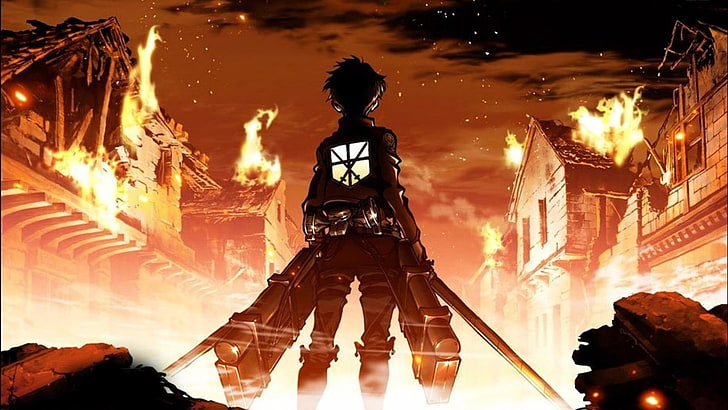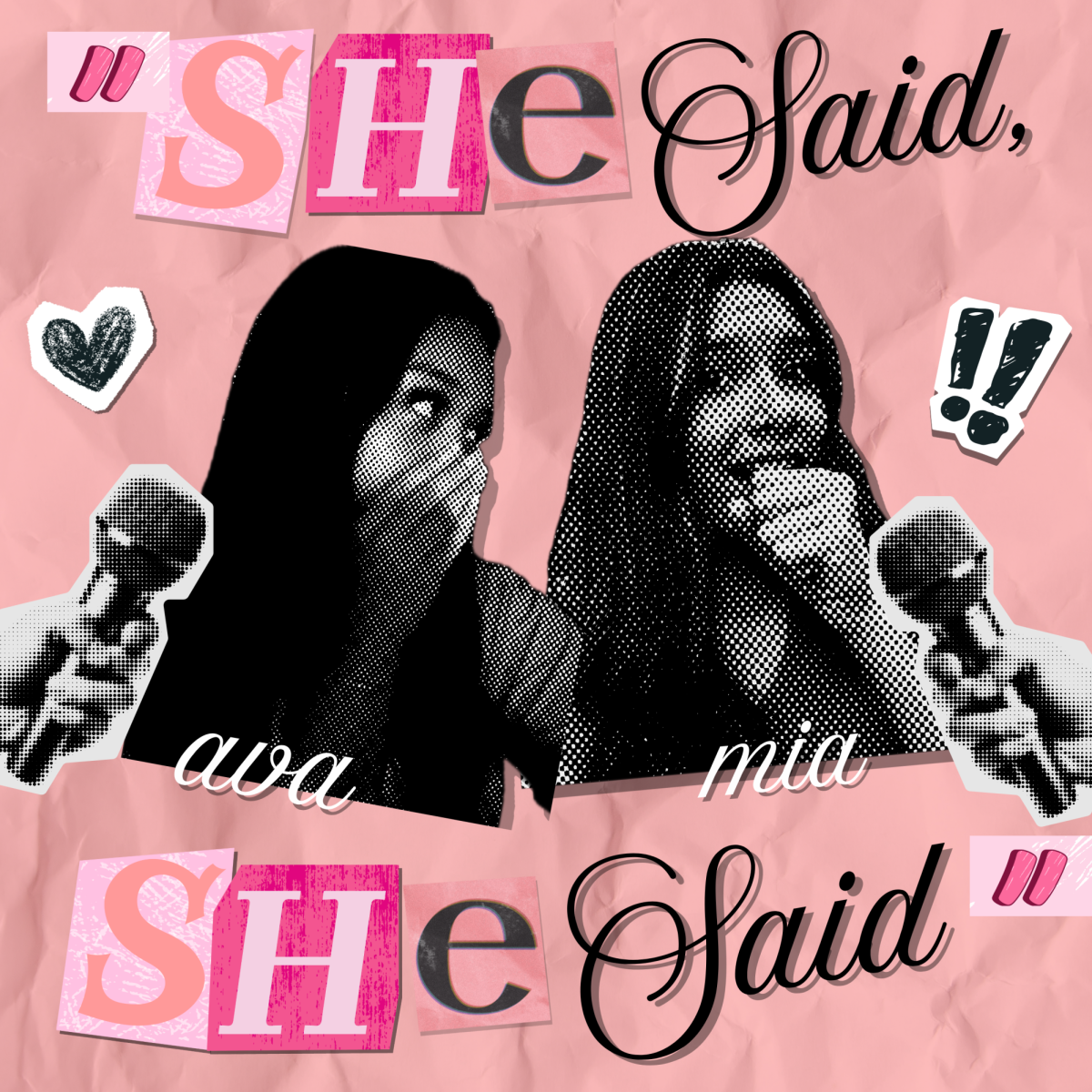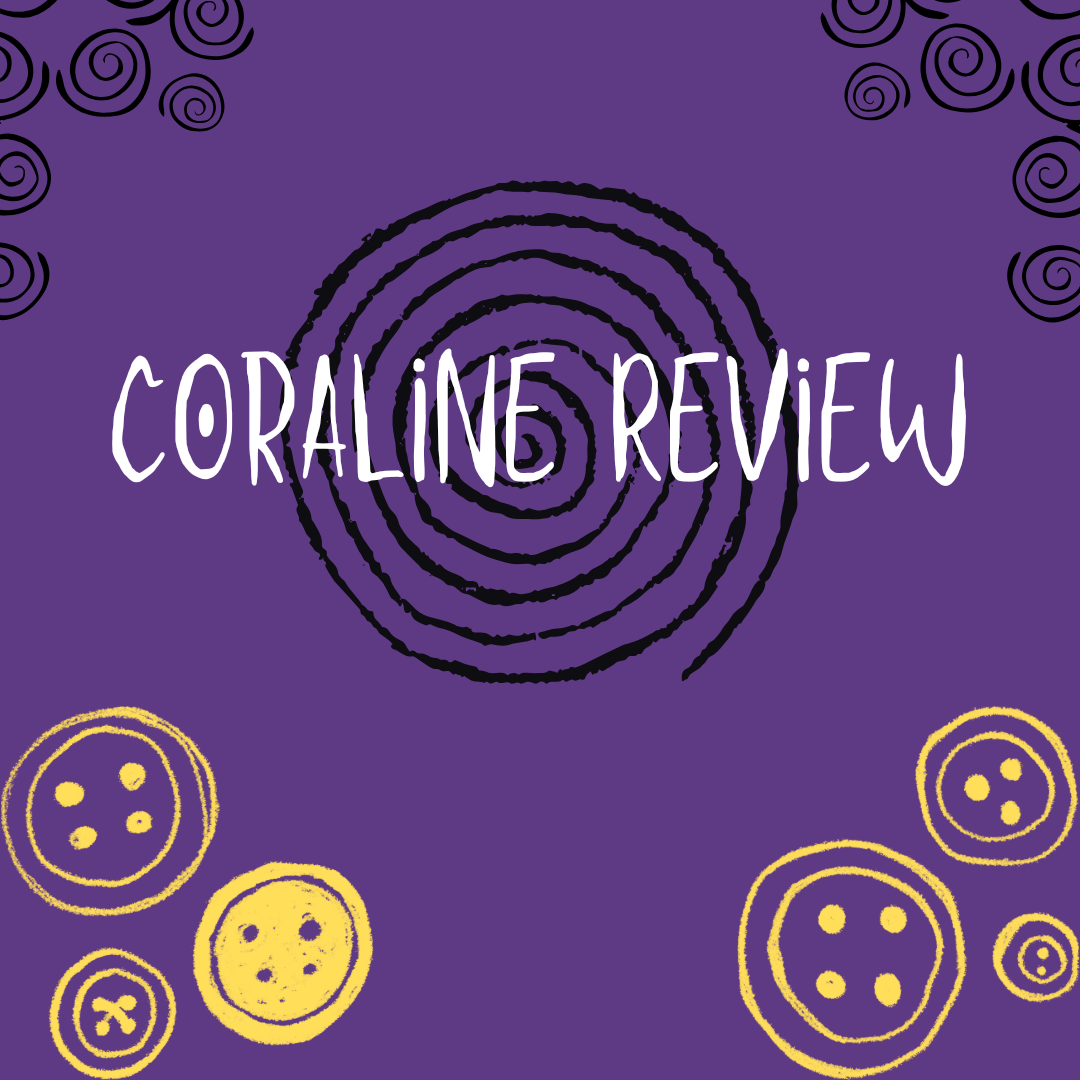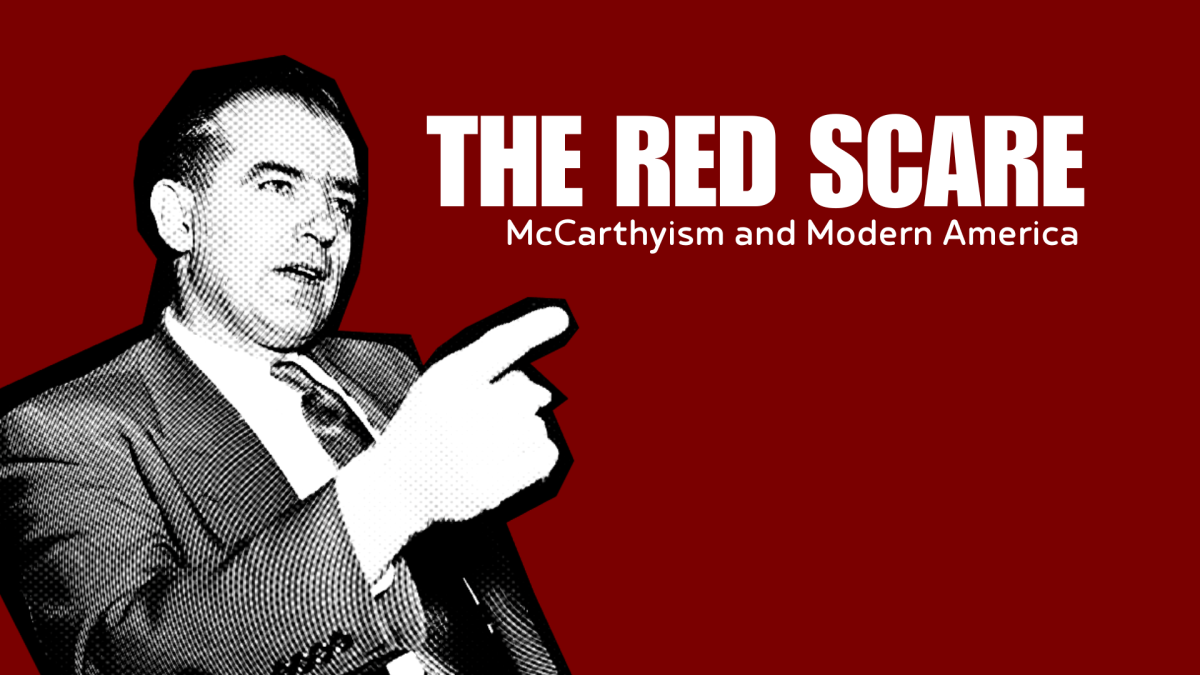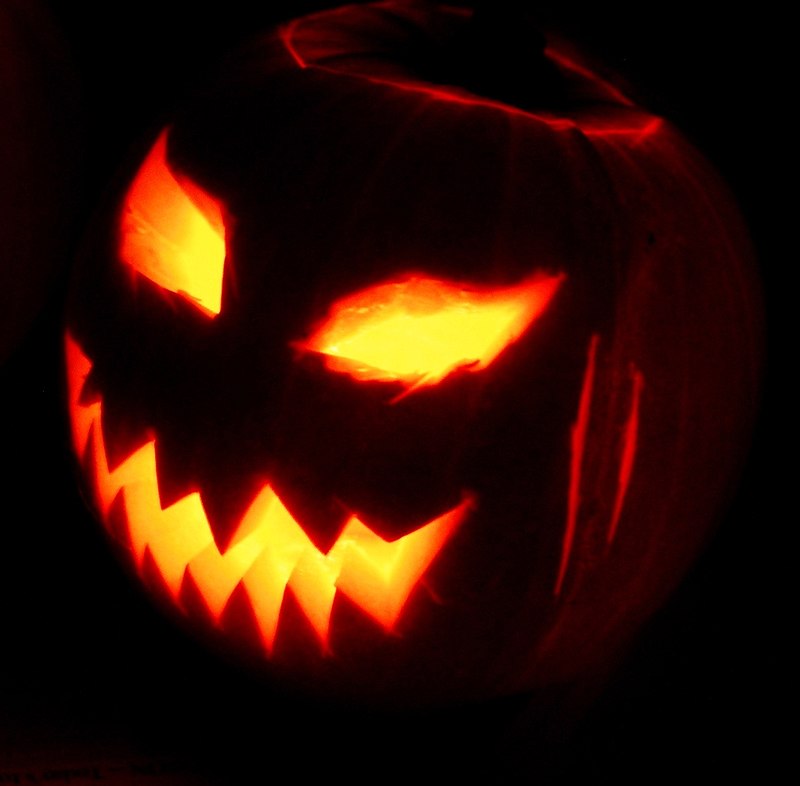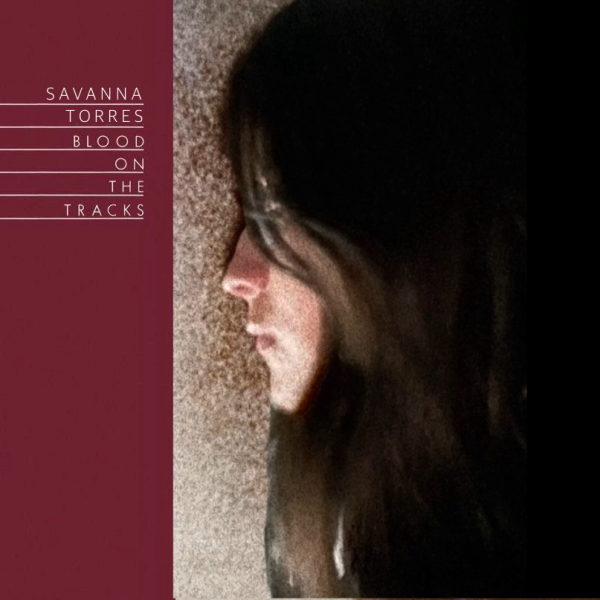Ever since the release of “Attack on Titan,” Eren Yeager has been the subject of mass discussion among the fan base. Initially, he was presented as a one-dimensional, sympathetic protagonist that most viewers are used to when watching or reading Shonen media. However, as the series progressed, the character development and shocking change of mindset in Eren caused a major change of opinion, as we watched a young boy who dreams of freedom transition into a war criminal who commits genocide against 4/5 of the human population.
In episode one, Eren is only nine and lives with his mother, father, and orphaned friend, Mikasa, in Wall Maria of the Human Kingdom— the last of three concrete fortresses named Maria, Rose, & Sina, that were established after man-eating Titans supposedly pushed humanity to the brink of extinction 100 years prior, and forced them to live inside its confinements. Maria is the poorest and home to the descendants of the last people able to make it in.
He dreams of joining the Scout Regiment, a military group who are the only ones allowed outside of the Walls in order to fight & kill the Titans, albeit in extremely small numbers. From the start, he dreams of liberty and life outside of confinement, and is extremely disheartened when his mother shuts him down, with the reasoning, “No son of mine will be cow fodder.” Eren quips back almost immediately, saying he refused to “live like cattle,” a recurring phrase which Eren uses to describe humans, showing a small detail of how he views humanity as not that different from animals.
Inevitably, Wall Maria is breached the same day, and the city is lost with mass casualties, including Eren’s mother & alluding to his father’s death as well. Eren & Mikasa witness how the Titans mindlessly destroyed homes and families, including their own mother being swallowed and eaten by one. While on a refugee boat headed to Wall Rose, Eren vows to become a Scout & take revenge upon every last Titan, and save humanity from a life of prison. This mindset is an extremely common cliche in anime. The orphan child witnesses something traumatic and takes a vow to dedicate their life to a certain cause. However, Eren is set apart from them by one common emotion: rage.
Instead of breaking down and crying over his experience in silence, he screams in anger over what has happened to him and the rest of Wall Maria. He is furious, and yet still holds empathy for the others around him. This is the main motivation throughout the entire series; his anger not only sets him apart from the cliche but also from the other characters. Years later, when he joins the 104th Cadet Corps alongside Mikasa and their friend, Armin (who also witnessed the horrific events in Maria), his grim inspiration for becoming a soldier is a stark contrast to the rest of his comrades— who mostly all want to become Military Police and live deliciously in Wall Sina, or stay in Rose as a soldier in the Garrison who get to stay inside the walls.
This probably would’ve been the choice that many of them would’ve stayed with, as promises of luxury and safety are much more persuasive than an almost certain death as a Scout. Had it not been for the rebirth that Eren experiences, which causes them to change their minds. After he was swallowed by a Titan during an attack on Rose right in front of Armin, her emerged back from its throat, as a Titan himself. For years up until this, Eren had been virtually defenseless against the Titans, but now with his newfound “gift” of the Attack Titan, he can face them as an equal. This moment, in my opinion, is the first step into his downfall of vengeance, as he was now slipping through the cracks of a being not fully human, and not fully Titan, in a psychological sense. I believe it is also worth mentioning that he can only turn into a Titan through actively biting himself so hard that it breaks the skin or cutting himself with a blade, causing some to interpret it as a metaphor for the effects of self-harm. His newfound ability also causes him to become a shining light of hope for the Scouts, as they now finally have the upper hand.
The second turning point for Eren is not only one for himself, but also as the main plot twist of the entire series. In the second part of season three, it is revealed that the humans living inside the walls are not the last of humanity at all, and that there is, in fact, an entire world living outside. Those living inside the walls are actually a race called Eldians, who have been forced to live on a small island called Paradis (pronounced Pa-ra-DEE) after attempting to establish an Empire using the might of the Titans, and conquer the world.
As a result, their entire people were punished, with the vast majority being isolated on Paradis, and the rest to be persecuted themselves as a minority in the rest of the world. Particularly in a neighboring country called Marley, which bears striking similarities to Germany in World War II. It is also revealed that several other characters, Reiner, Annie, and Bertolt, are from Marley and also possess the ability to transform into Titans. It was Reiner and Bertolt who caused the destruction of Maria, and it was Annie who took the form of the Female Titan and killed her own comrades. This betrayal, on top of the revelation that there is a world beyond the walls that despises the Eldians, is the final cause of Eren’s spiral. When he reaches the beaches of the Island and, for the first time, witnesses the ocean, he asks the question, “If we kill all our enemies on the far side of the ocean, will we be free?” He realizes that even though he has left the walls of his island, there is only more bloodshed and violence beyond the sea.
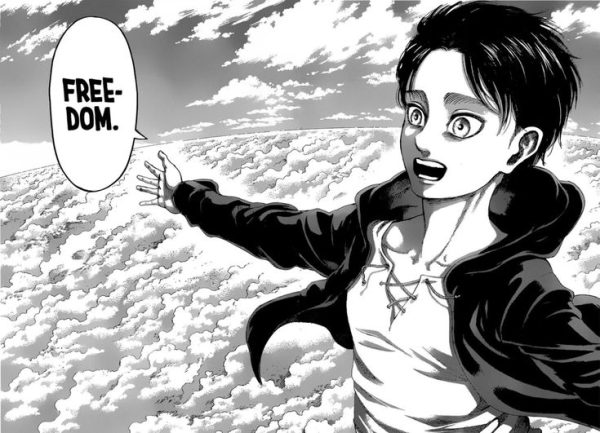
After a few years, Eren, now having realized his plans to reach total “freedom,” infiltrates Marley against the will of the Scouts, and lives under the guise of a wounded soldier as he observes the lives of both Eldians and Marleyians. He sees how they are living in much better conditions then those on Paradis — and how Eldians there are treated as second-class citizens, living in segregated societies, and are forced to be branded with an armband to let others know who they belong to. Then, during a festival in Liberio, Eren takes the form of the Attack Titan and destroys the city with the help of the Scouts after notifying them of his plans and forcing their hand, in an act of retaliation of what happened in Wall Maria. Eren has now allowed vengeance to cloud his original desire of freedom, and his morals have changed because of it. Ash Liu, a Freshman at Eleanor Roosevelt, says that “Eren’s morals and ideals are real for someone that went through what he did. He’s like a real person in a way.” Demonstrating how the character connects to real life in a way that causes people to take notice.
This attack on Liberio was only the start of his plans, as not much later, he enacts The Rumbling, a catastrophic event where he awakens colossal Titans, dormant with the Walls, to destroy the entire world and create a blank slate of the Earth, believing it to be the only way to save the people of Paradis. He nearly succeeds, directly causing the deaths of 80% of humans, approximately 1.6 billion people—before being beheaded by Mikasa, in an act of both love and justice. She realizes there is no saving him, and there is no justice in letting him live.
Eren’s death, ironically, is interpreted as a fresh start for the Earth, as with him gone there will be no more Titans due to his power being extinguished, and the cycle having ended. His original wish for all Titans to be eradicated is achieved, at the cost of his own life due to the fact in the end, he died a Titan. The masterful writing of Eren shows just how fragile the human mindset is, and how easy it is to slip down a path darker then intended. He symbolizes the tragic consequences of unending hatred, the complex nature of freedom, and the blurred line between hero and villain.

